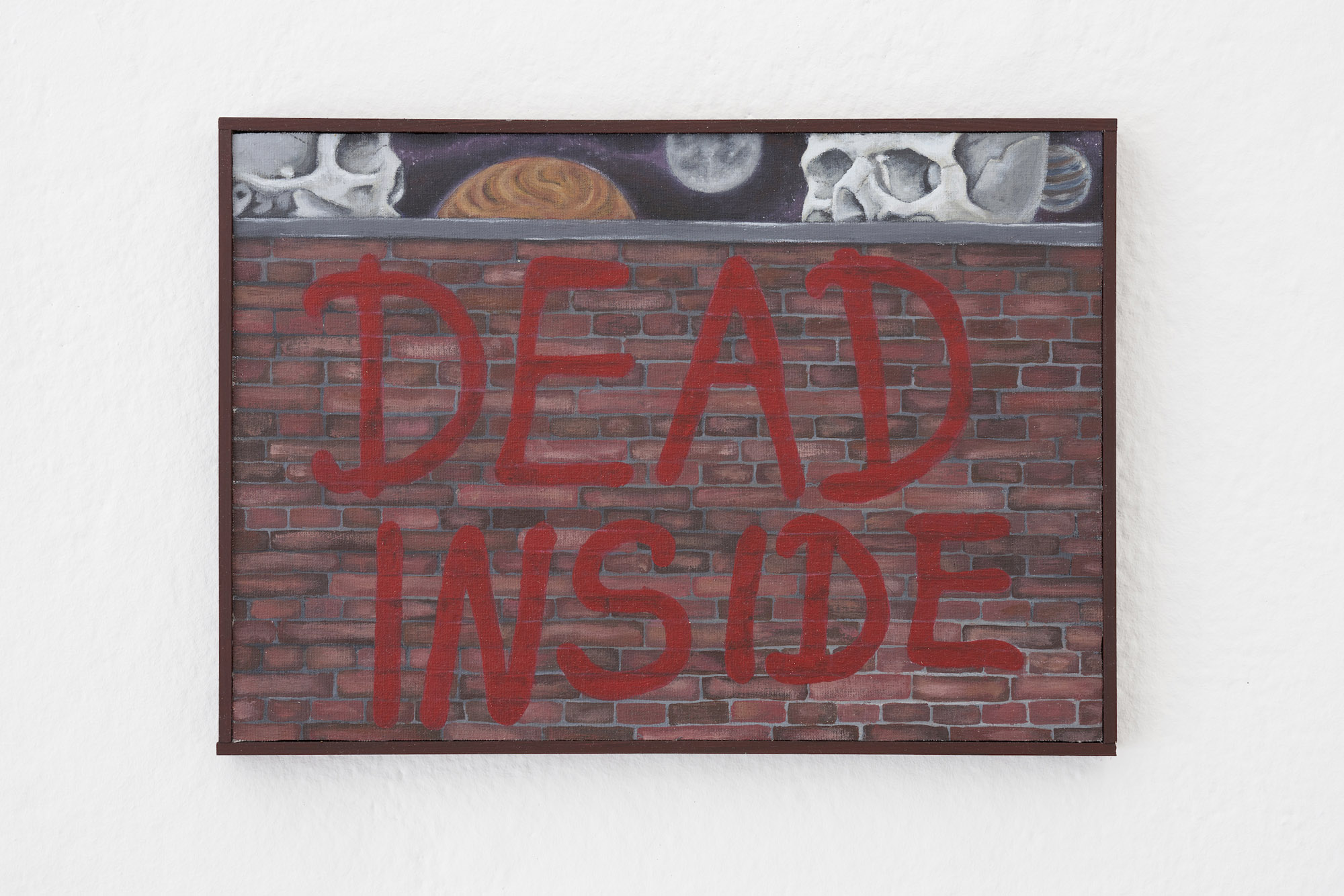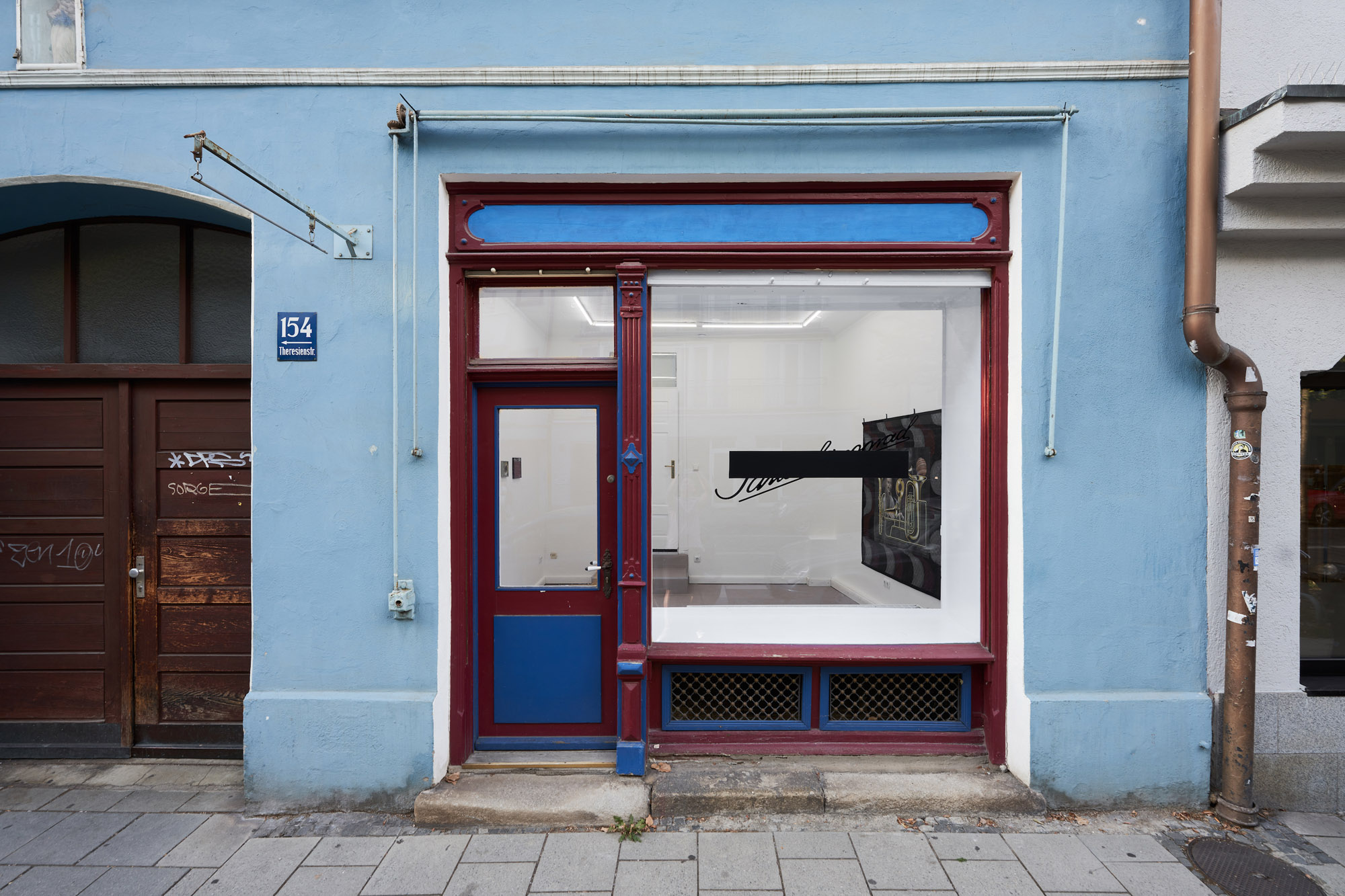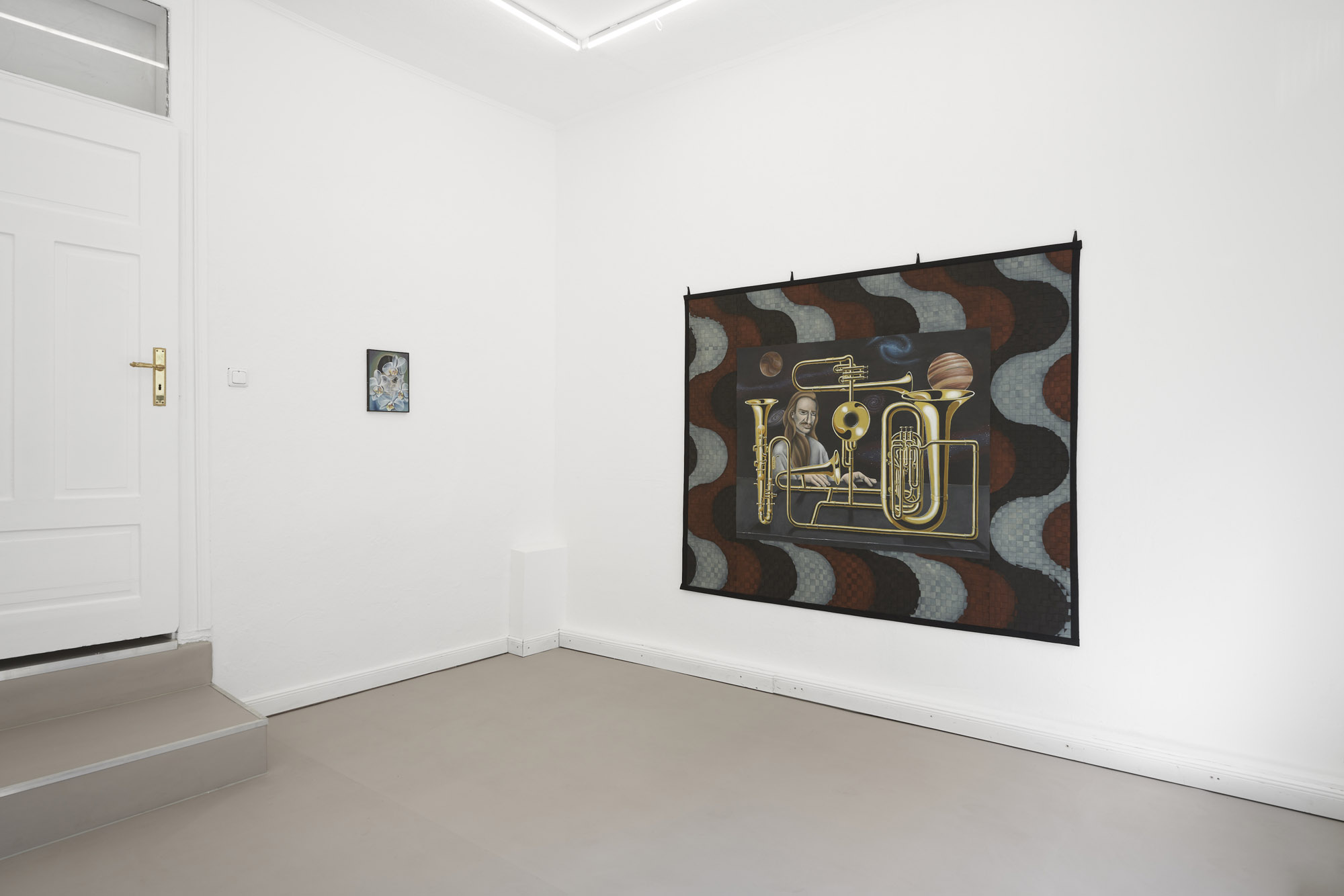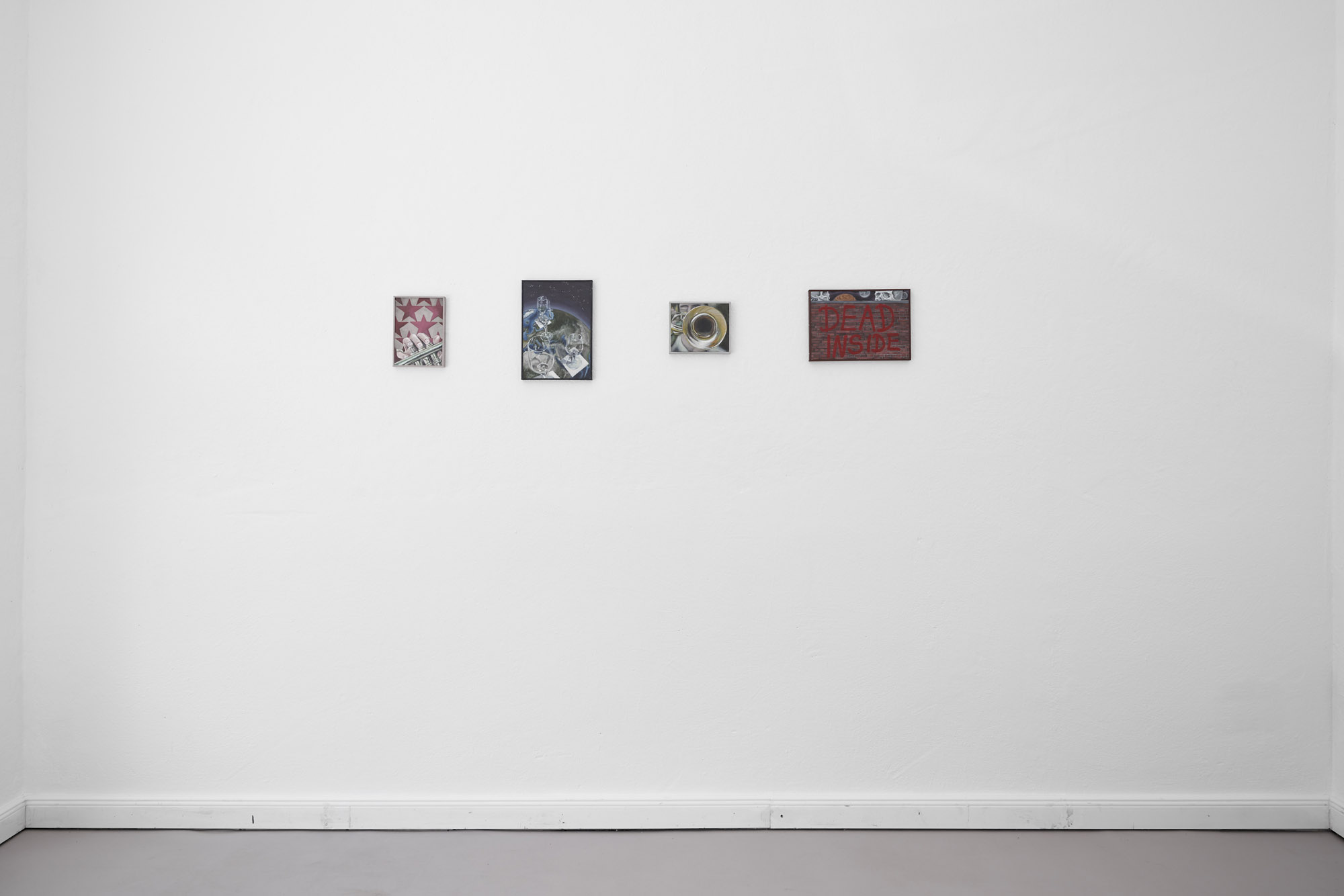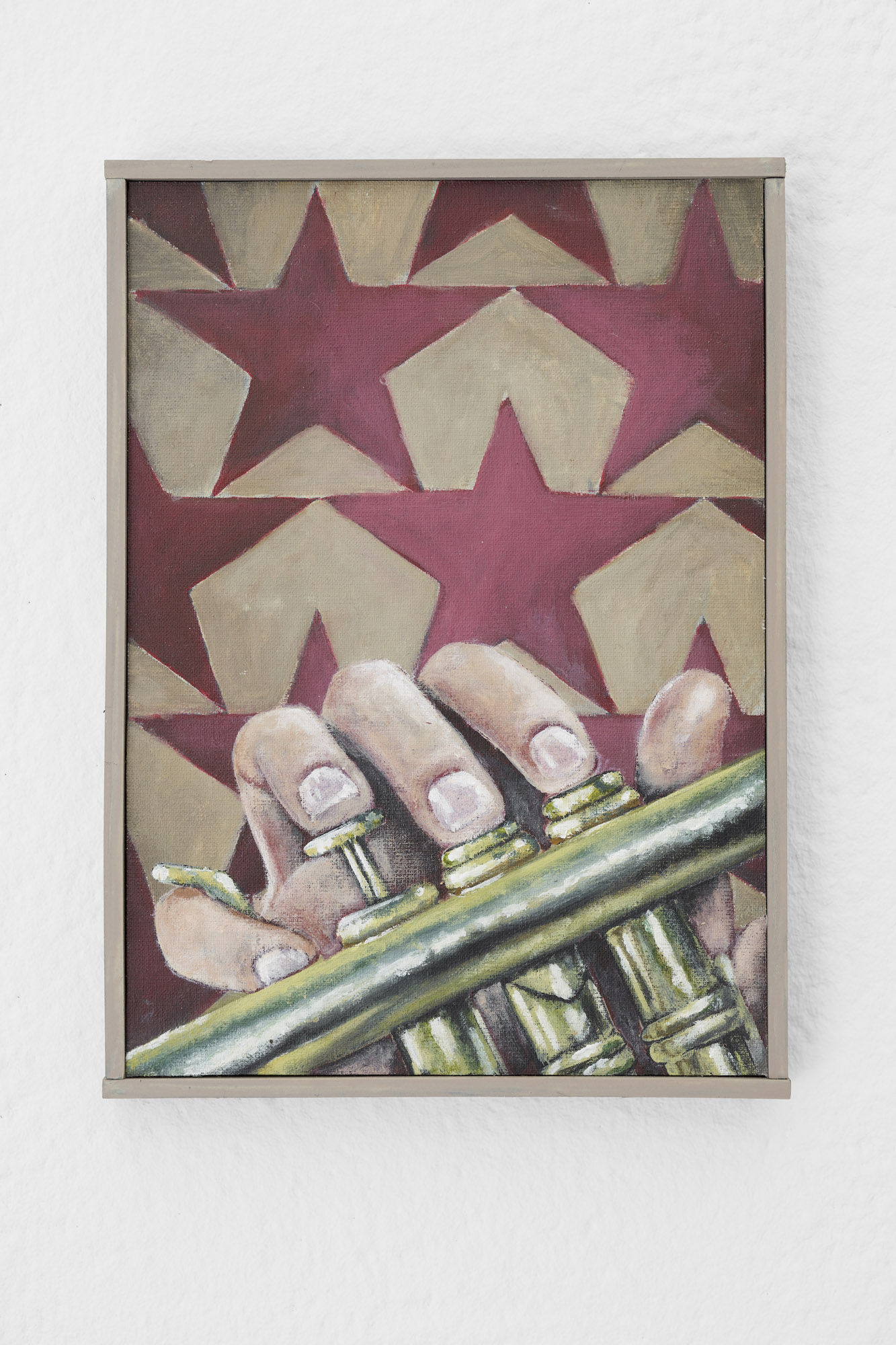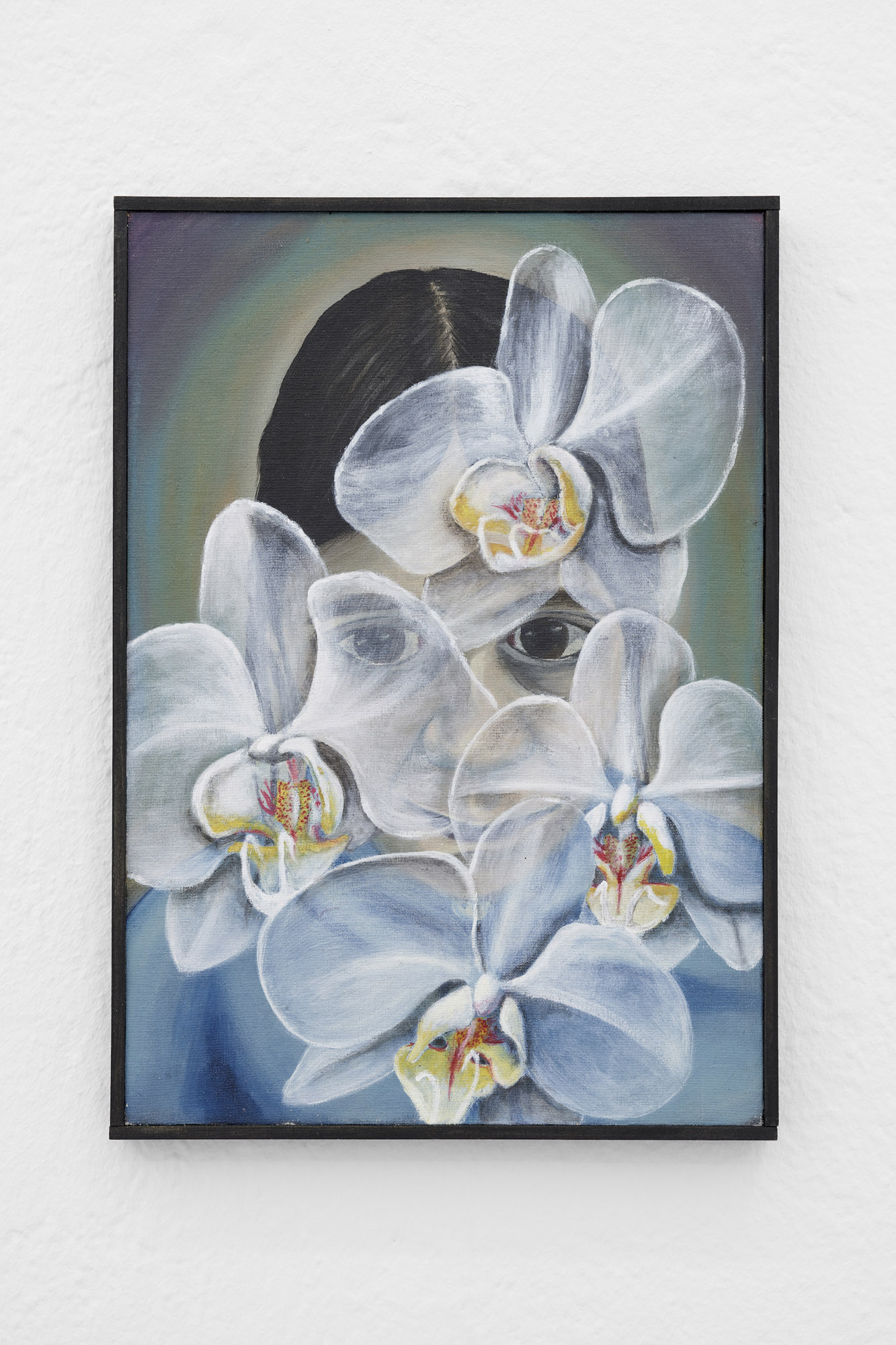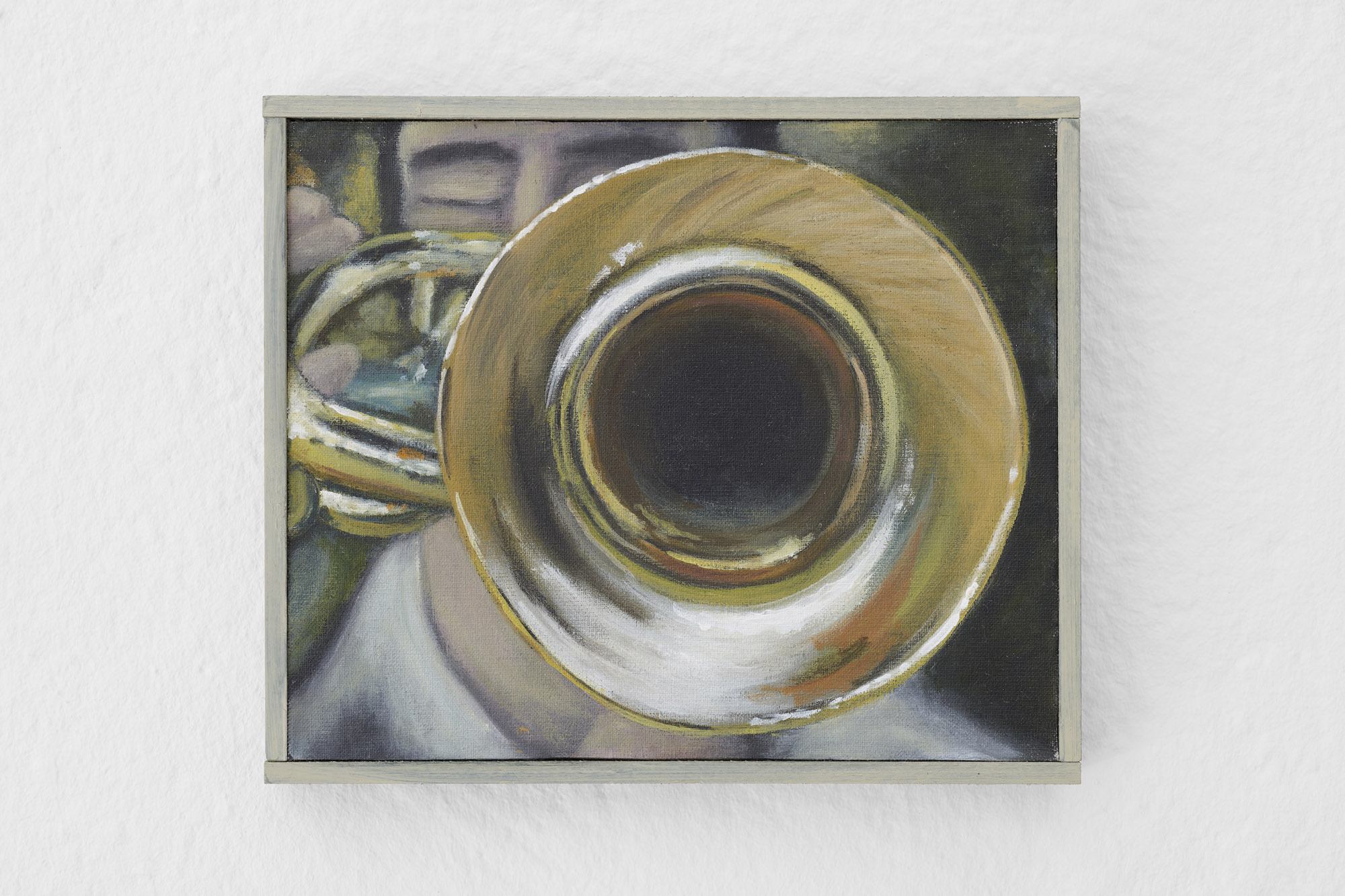Artist: Stefan Fuchs
Exhibition title: City without a future – the rediscovery of the weekend
Venue: Schwabinggrad, Munich, Germany
Date: July 15 – September 3, 2022
Photography: Ulrich Gebert / all images copyright and courtesy of the artist and Schwabinggrad, Munich
Half-empty glasses, abandoned, the party abruptly halted and revelers gone without a trace. Exhaustion sets in, supplanting exuberance and optimism. Frozen in the moment, it seems this fatigue might be overcome after all. The city may have no future, but with it comes the rediscovery of the weekend. For all their seriousness and occasionally sinister atmosphere, there is a confidence to Stefan Fuchs’s works as well.
It is a highly complex machine that determines A Universe within You. The work forms the exhibition’s effective center, but it also connects all of the other paintings to one another. Consolidating in the machine as subject matter are all the various subjects and themes Fuchs has explored. The idea that a single action, as a chain reaction, always triggers other actions down the line and—continuing the thought—everything is subsequently interconnected in a metaphysical sense, is key. It is not without reason that a view of the universe becomes the backdrop for this surreal scenario. Here, an engineer has assumed the ambitious task of combining a saxophone, a tuba and a trombone, among other things. The supposed sound machine remains silent. Its carefully contrived connections prove fruitless (considering no mouthpiece was factored in), a configuration that recalls Francis Picabia’s construction sketches of non-functional apparatuses on the one hand and Eva Hesse’s bizarre mechanical drawings on the other. It also brings to mind examples of failed modernist modular architecture concepts, which appear again and again in Fuchs’s work.
And yet this hardly dampens the dynamic between protagonist and fantastical machine. True, its hands are at rest, but less out of resignation than on account of a reflective pause. Slightly exaggerated in proportion and centrally positioned, they emphasize the creative act Fuchs pursues as his superordinate subject. It is an interest underscored by the strong human presence at work here, even when the image itself is devoid of people (The Fatigue) or they appear mentally absent.
The art of creating something—creating art—is analogized with the idea of describing an individual universe. Hence, reflections of light on a trumpet’s bell morph in The Origin of the Universe to a maelstrom-like pattern of the golden spiral—the defining feature of spiral galaxies, of which our own solar system is a characteristic example. To surrender powerlessly to the vastness of the universe or to reach for the multitude of open possibilities it holds, that is the question. The trumpet is raised, poised to play; an exhausted, but unobstructed look through protective orchid blossoms, fingers on the valves, everything points to the latter. So, too, does the posture of central protagonist in this exhibition. The machine does not yet work, which means the search for its reality remains incomplete. Yet its bold facial expression suggests that its utopia lives on, that it cannot be buried under dystopian notions.
— Aline Fieker

